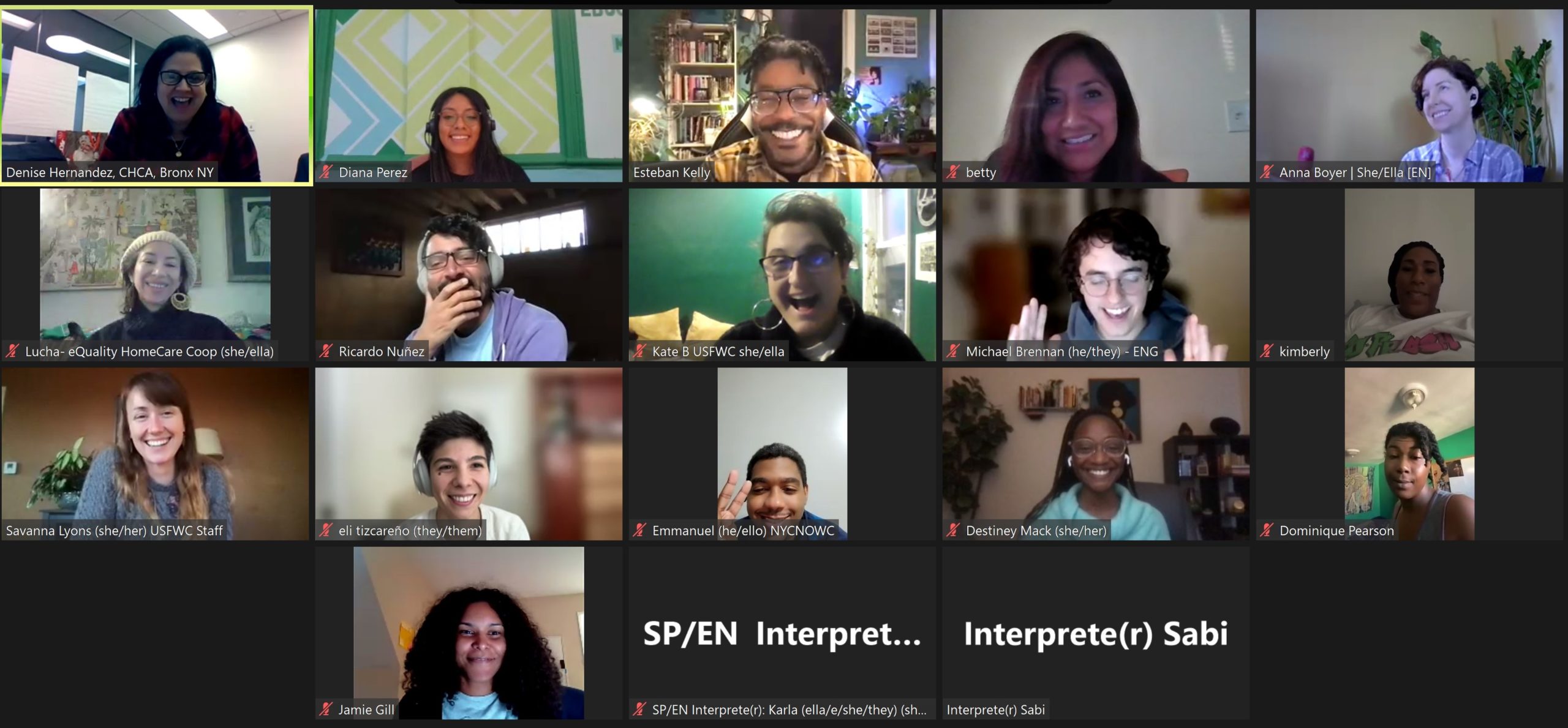Haga clic aquí para leer esta entrada en español
Our Member Councils and Peer Networks are shaping the future of the worker co-op movement in the U.S. through offers and needs markets, collective education & learning and political advocacy for a worker-centered economy. Here are the highlights for this month from some of our Councils & Networks:
New year, new me…eting times! See below for the schedule of recurring Member Council and Peer Network meetings.
- The Policy and Advocacy Council is switching to one 90 minute meeting per month, at 2pm ET / 1pm CT / 12pm MT / 11am PT on the first Thursday of the month.
- The Union Co-ops Council will continue meeting at 1pm ET / 12pm CT / 11am MT / 10am PT on the 2nd Friday on even months. At the February call, we’ll hear from Glitter Bean Cafe, a queer-centric unionized worker co-op in Halifax that arose as an alternative to working in an unfair work environment under private ownership.
- Federation Partners will be meeting quarterly on the last Thursday of January*, April, July, and October at 3:30pm ET / 2:30pm CT / 1:30pm MT / 12:30pm PT. (*The January meeting will be on Thursday, February 2nd.)
- The new Co-op Academies peer network will also be meeting quarterly on the last Monday of February, May, August, and November at 3:30pm ET / 2:30pm CT / 1:30pm MT / 12:30pm PT.
- Cooperative Booksellers will now be meeting on the first Fridays of each month at 4pm ET / 3pm CT / 2pm MT / 1pm PT.
- Tech Worker Co-ops will continue meeting on the second Wednesdays of each month at 4pm ET / 3pm CT / 2pm MT / 1pm PT.
Stay tuned for announcements about getting involved with our other Member Councils and Peer Networks as they re-launch and come online!


